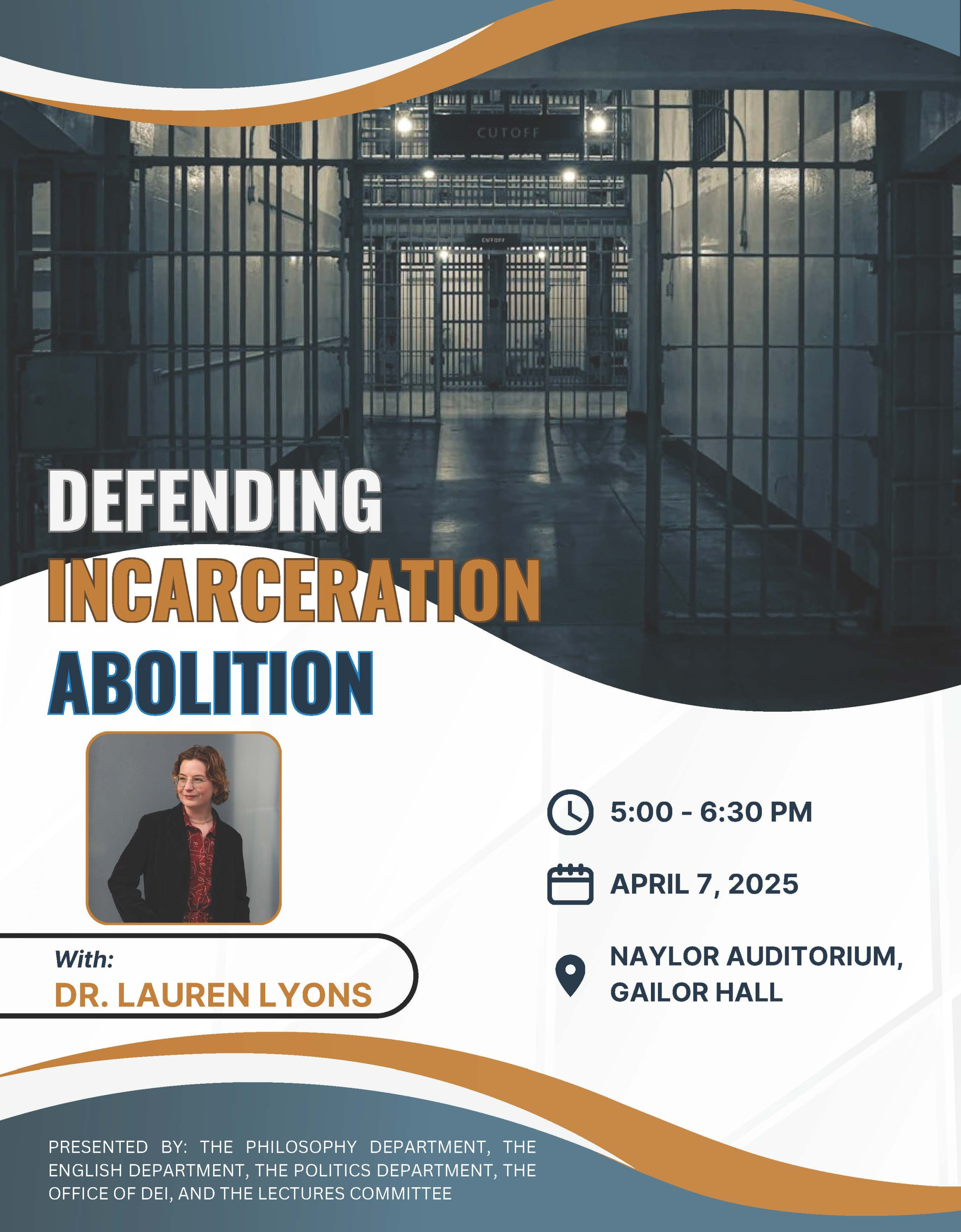
Monday, April 7, 2025
5:00pm
Naylor Auditorium, Gailor Hall
The idea that jails and prisons are flawed beyond repair and that we should gradually abolish them—the prison abolitionist proposal—has gained substantial traction in recent years, especially in light of the ongoing Black Lives Matter Movement and heightened public awareness of the failures and unequal impact of our criminal legal system. Discussion of the abolitionist proposal in philosophy has been largely critical.
One notable critique is Tommie Shelby’s recent book “The Idea of Prison Abolition”, where Shelby carefully analyzes abolitionist thought and argues that prisons should be drastically reformed rather than abolished. The goal of this talk is to offer a novel defense of prison abolition in response to Shelby’s objections and others.
I will do this by first refining the most normatively attractive version of the abolitionist proposal, and then working through two families of rationales for abolition. The first grounds abolition in the idea that there is something fundamentally unjustified about punishment by incarceration. The second focuses on the inegalitarian effects of incarceration in unequal societies with endemic racial injustice.
I claim that the success of both approaches to abolition hinges on whether they can offer an adequate response to the necessity challenge, or the issue that though incarceration is objectionable, we should not abolish it if alternatives are worse still. In response to this, I argue first that we should be agnostic about whether crime could be adequately prevented if we abolished incarceration, citing empirical and normative uncertainties. I then suggest that transformative and restorative justice strategies, a central positive component of abolitionism, offer an appealing and perhaps superior form of corrective justice after wrongdoing.

